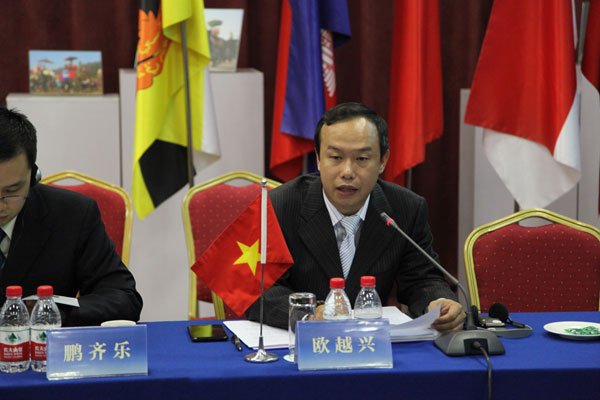
By Mr. Au Viet Hung
Cultural Attache, Embassy of the Socialist Republic of Vietnam
Vietnam, a harmonious mixture of 54 different nations, has a rich culture, especially in terms of intangible culture. Since the reform and opening-up, the intangible culture of the 54 nations have stood out through diverse researches conducted by Vietnam and foreign scholars. Yet the researches were confined only to documents, manuscripts and works created by artists. Many oral heritages have ceased to exist, leaving even no signs in people's mind, because common people don't have enough knowledge or understanding about the value of their own traditional culture. As a result, some manners and customs, folk knowledges, skills and special technologies have been drowned/buried in the sea of the past, unable to revive.
Nevertheless, after the relevant government departments learned about the international perspectives, particularly the Convention for the Safeguarding of the Intangible Cultural Heritage proposed by UNESCO in 2003, Vietnam have adopted measures, which have already borne fruit, to deepen the understanding/raise awareness about the intangible cultural heritage and to fully protect such heritage. Vietnam have learned and inherited the experience in protecting the intangible cultural heritage so that activities on the protection of the intangible cultural heritage are well developing. My dear counterparts, Vietnam's work achievement concerning the protection of the intangible cultural heritage are as follows:
First, Vietnam promulgated in 2001 the Culture Heritage Law, which is used as an important legal tool for the protection of the intangible cultural heritage.
Secondly, Vietnam has recognized that to protect our cultural heritage and cultural characteristics, we should surmount our old ways, which were generally subjective, academic and theoretical; furthermore, we should proceed from our cultural subjects, from their need and their benefit.
Thirdly, social recognition is an important basis for the intangible cultural heritage to exist and survive in contemporary society. Therefore, it is significant and indispensable to raise people's awareness of culture protection. Cultural preservation in Vietnam has already been written into culture law and museums all over the country have organized activities relating to cultural education about the intangible cultural heritage.
Fourthly, every intangible cultural heritage from every nation counts and matters for Vietnam. In accordance with the provision 12.1 of the UNESCO Convention, we included all intangible cultural legacies into a ranking list. We evaluated each intangible cultural heritage by their current vitality and then divided them into "in need of protection" and "in need of emergency protection".
Dear peers:
Vietnam still has many to improve and many experience to learn regarding the preservation of the intangible cultural heritage. We know that we should make more efforts to accomplish this work and we hope to get help and experience from our peers through communication. Vietnam has always been willingly welcoming the exchange of idea and experience with international partners. At present Vietnam are facing the following problems:
1. The recognition of the intangible cultural heritage and the putting into practice of the opinion on preservation.
2. The vitality environment of the intangible cultural heritage in case of the change of cultural subject.
3. The influence of economic and social development upon heritage protection.
4. The problems caused by the commercialization of cultural heritage.
5. The impact of globalization and foreign culture on local culture.
6. The impact of tourism operation on the sensitive cultural heritage.
Thank you for listening.










